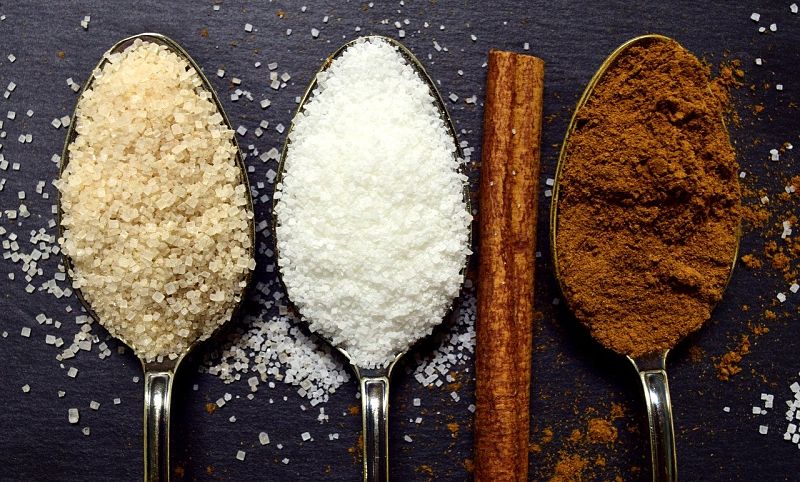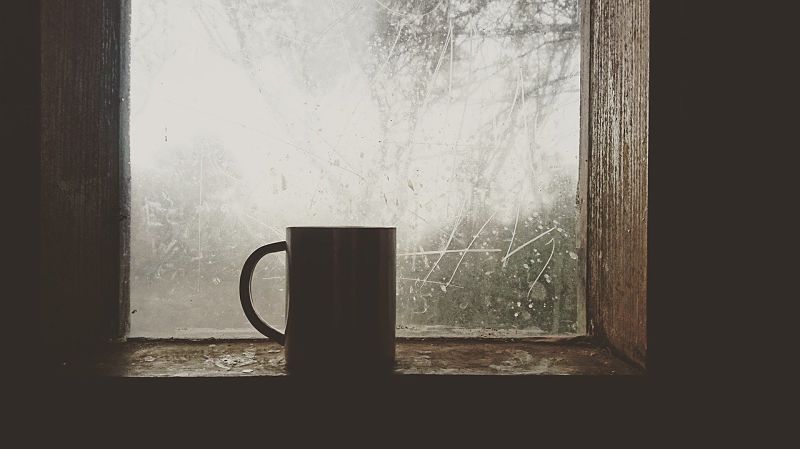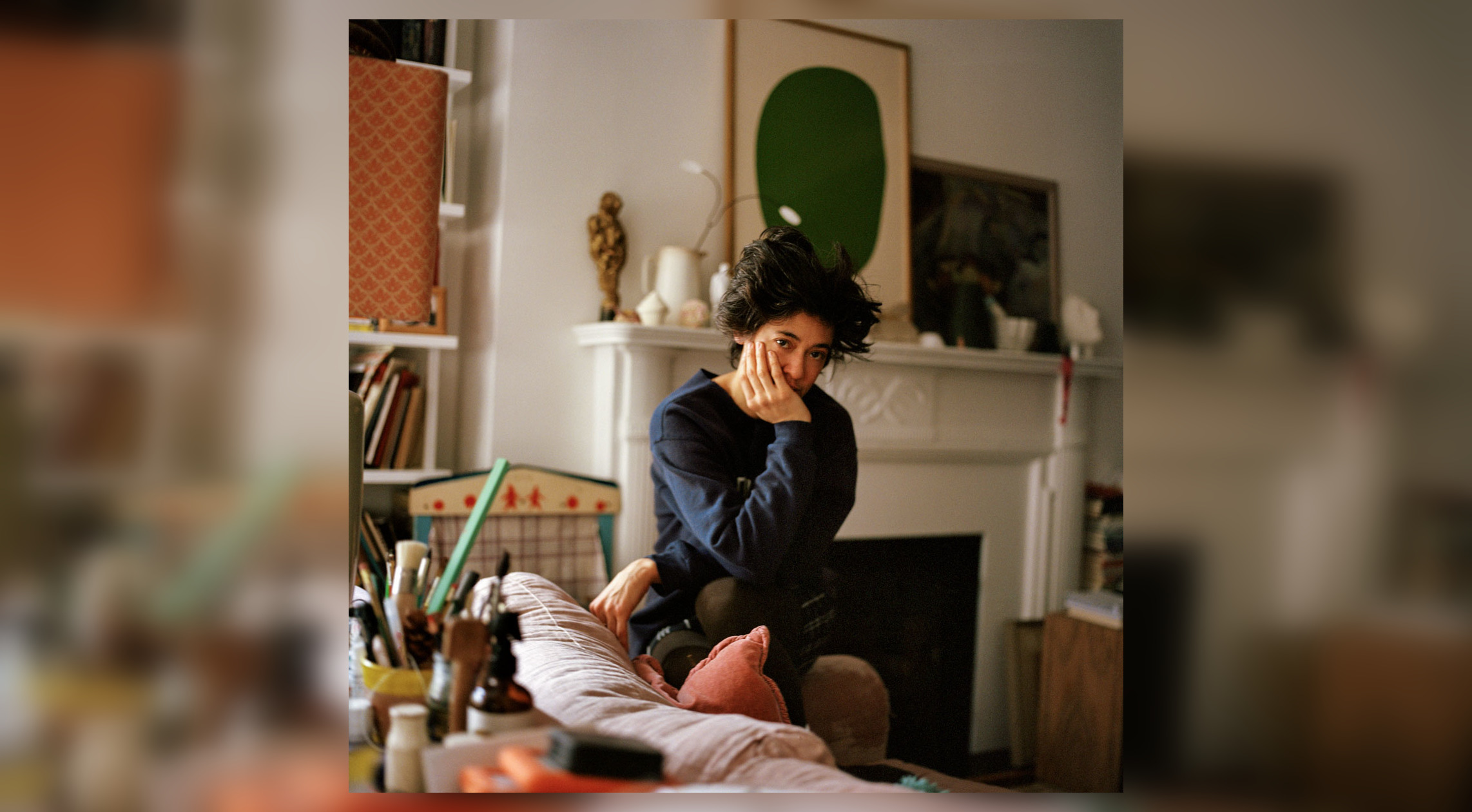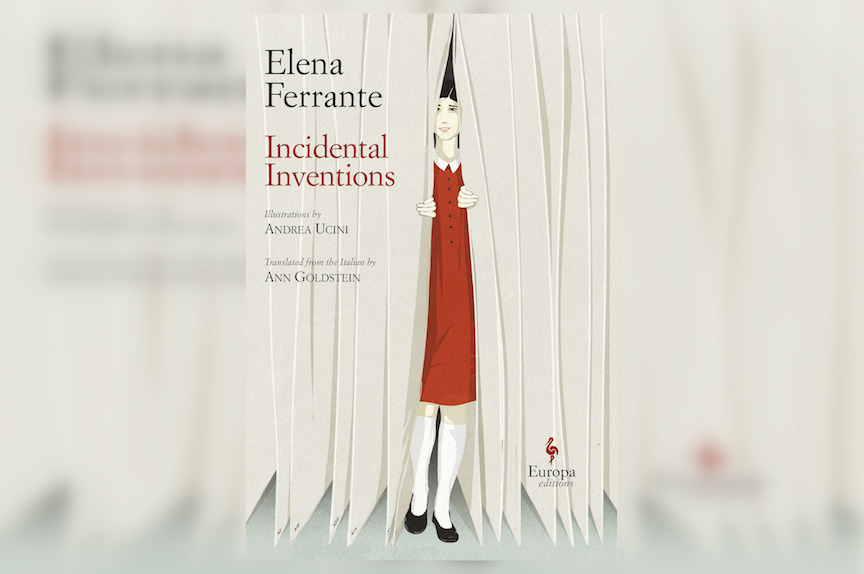The night before I moved from Maryland to California by myself, I went to the ice cream shop with the color changing plastic spoons. I was fourteen. I had always been surrounded by family, having lived in a house with my grandmother, mother, grandfather, brother, and sister.
My grandmother never missed an opportunity to remind us that money was tight. She refused to adjust the thermostat despite the humidity that blanketed the house in the summer, or the chill, the seeing your breath in the house that came with bitter east coast winters. She made a game of cutting out coupons. She bought the day-old bread, saved the expired milk, monitored the amount of salt, peanut butter, and seltzer water that was consumed during any given day. She was the queen of penny-pinching. My brother, sister, mother and I lived with her for five years. In her house, with her furniture, living by her rules.
She died during my first year away from home, on the night of December 14, 2018, surrounded by her six daughters. It was around two in the morning. I had come back from school early and was sleeping on an air mattress upstairs.
*
A spoonful of sugar will make the medicine go down. Spooning your wife before you fall asleep. Decorative, silver collectable souvenir spoons—the nose-in-the-air alternative to a keychain. The nice silver spoons with little flowers forged onto the handles that your mother only takes out for dinner parties. Spoon music, the kind with a washboarding, fiddling band. The kind at a subway stop or at a busy intersection, with a tip can and a few tourists filming on their cell phones. The first kiss in the morning while you eat your cereal, stir your coffee. I bet you used a spoon today, or, at the very least, yesterday. If you haven’t, I hope you do soon.
*
The world’s largest collection of spoons is currently located at the New Jersey Spoon Museum. Bertha Schaefer Koempel collected over 5,400 spoons in her life. They acted as her timeline, an epic chronicle depicting her travels, friends, holidays, and parties. After dying, she donated her flock of spoons to the Passaic County Historical Society. It was decided that the collection be displayed in the Lambert Castle Museum. The attraction of the spoons is now a separate entity, “The New Jersey Spoon Museum,” to be precise.
I want to go there. Really badly. I want to see a life told in spoons. I want the sheer quantity, the intricacies, the spooniness to become a riptide that steals me away. It will be a pilgrimage for me. For just one day, I want to hear the language of spoons. I want to be baptized by cases upon cases filled with a woman’s life obsession.
*
A large portion of my social life during sophomore year was spent watching movies and frying eggs with two of my friends, Simon and Jack. In attempts to expand our social circle, we invited some people to eat with us. It was a snowy afternoon and much of it consisted of us running back and forth from the kitchen to the table, cooking and trying to placate all members of our gathering. I spent half of the evening clearing away eggshells, wiping up spills, getting utensils, and washing pans without stopping to sit down. When I did tiptoe my way into the conversation, anxiety, like a brain freeze, stopped me in my tracks. My chest and lungs became tight, I took more than pharmacy-suggested puffs with my hand curved around my inhaler, as if lighting a cigarette.
Once the gathering came to an end, Simon, Jack, and I found ourselves exhausted, snappy, wound tight by the overstimulation. It was then that Simon introduced the Spoon Theory.
The Spoon Theory is a concept designed for people living with chronic illness to explain and understand their limited energy levels. Articulated by Christine Miserandino in the spur of the moment at a diner, it was initially used to explain to a friend the struggles of living with Lupus, an autoimmune disease. The theory, using spoons as a metaphor for units of energy, depicts the cost of daily tasks in terms of the bargaining and spending of spoons. Small tasks—getting out of bed, brushing your teeth, dressing—might cost you one or two spoons, depending on how hard they may be for you. Larger tasks—giving a presentation, going to a busy grocery store, meeting up with a group of friends, driving in rush hour—take more spoons. Other, unexpected things might pick-pocket your spoons before you have time to protest: a bout of undying pain, a panic attack, a seizure, a wave of suicidal ideation. The theory punctuates the constant stress, bargaining, and planning involved in a day-to-day existence with unending illness shadowing you.
Followers of this theory refer to themselves as “spoonies.” They are people who do not have an endless supply of spoons, who can recite medical intakes like a prayer. People whose days are bookended with pills. People who high-five over surgeries, hospital jello, and ambulance rides. They hold their day’s allotted spoons like they are silver coins left by a generous tooth fairy. Spoons have become sickness’s rosary. Bargaining spoons for the completion of mundane tasks like a Jewish grandmother at a fish market.
My discovery of the Spoon Theory came at a perfect time. While still living with major depressive disorder and a chronic anxiety/panic disorder, my lungs started revolting. Fits of coughing and wheezing became routine for me. Upon a violent spell of coughing in early October, in which blood started coming up, I was hospitalized. After a series of x-rays and pulmonary tests I was given an inhaler but no diagnosis. They said it might be asthma. Or maybe some kind of continuous bronchitis. But they didn’t know for sure. Whatever it is, I can’t breathe sometimes. And sometimes, it feels like there are pop rocks in my lungs. Sometimes I get dizzy. Sometimes the irregular breathing triggers my pavlovian nightmare of a central nervous system, resulting in a panic attack.
On some level, the Spoon Theory has comforted me. I can remind myself that I don’t have an endless supply of spoons; that I don’t have to have a bar so high that my spoons won’t even make it halfway up. I get to remind myself that I am not gambling away my spoons. That I have what I have and do what I can: I spend my spoons on school, on writing, on taking care of myself, on people that I love. On people that give me their spoons in return.
My grandmother only gave her spoons to her daughters and her granddaughters. My grandmother gambled away her spoons. She sat on the porch, chain smoking and listening to NPR. She drank cold, burnt black coffee at two in the morning. Said it calmed her nerves. She had saltines and blood pressure pills for breakfast.
When she was dying, it was easy to see her spoons dripping off her remote controlled hospital bed. They clinked to the ground as her glassy eyes scanned the faces of grandsons in soccer uniforms, granddaughters reading school essays aloud, daughters filling out medical forms. Her spoons puddled on the blue carpeting, waiting for some grieving woman to sweep them up and put them in a box for the estate sale.
The summer after she died, I was informed by my mother—the executor of my grandmother’s will— that my grandmother left me a set of silver grapefruit spoons. They came in a red box and had flowers dancing daintily over their handles. They were unpolished, with sharpened edges, and they smelled like the morning breath of my great grandmother, my grandmother, my mother, and my sister.
*
Though it is not known when the first spoon blessed the lips and food of man, “archeological findings can place some of the ornamental and religious spoons in the area of 1000 years BC” (“History of the Spoon”). Stories, prayers, and scenes were carved into the spoons and gifted to pharaohs. A spoonful of holiness, of magic. A spoonful of creation, of polytheistic, saintly stories. In “History of the Spoon,” eatingutensils.net listed types of spoons based on the ways they were used: “Coronation and anointing spoon – used by various royal families in their ceremonies, most notably by English crown, Cochlear – religious spoon of Eastern Orthodox Church, used to serve consecrated wine, newborn spoon – made from silver and given to newborn children as an object of good fortune, ear spoon, drug spoon, and many others…” Imagine that. Doesn’t the world seem ruled by spoons? Spoons blessing you upon birth, spoons crowning kings, spoons to listen, spoons to intoxicate. “And many others…” like a warning, as in: just imagine and there is probably a spoon for it.
*
Someday, I will be a wife. Someday, I will have a wife. I think that is very exciting. Someday, the two of us will move into our own home. And we will go buy a big bed, bookshelves, a dining room table, a bathmat, water glasses, pots, pans, and yes, spoons. We will go to Ikea, honey-mooning our way through the maze of kitchenware. We will compare utensil sets- silver or wood, length, weight. We will hold up spoons to the migraine inducing fluorescent lights and see them glitter.
Someday, when I am a wife with a wife, we will make dinner in our kitchen. Stir a three bean chilli and toss a salad. I will spoon olives and capers out of little jars. She will stand behind me as I stir a carrot broth, both our hands on the handle of a large wooden spoon. Love requires spoons of many sizes. Love gives you spoons of many sizes.
At night, someday, in our big bed, my wife and I will spoon. We will nestle together like the currency of life: spoons, silver spoons, heirloom spoons, antique and priceless.
I came out to my grandmother and she said “good, men are the worst.” I came out to my grandfather and he forgot. I came out to him over and over again but it never stuck. His memory was a leaking thing. He felt blindly for names, expressions, passwords, and basic facts.
When my grandmother died, he went to live with my step-uncle in Sweden. We had to pack up the house. The house I grew up in, learned to cook in, read victorian literature in, wrote a novel in, came out it, educated myself in, resisted family and overcooked broccoli in, grew lonely in, panicked in, hid in, turned 10, 11, 12, 13, and 14 in. We had to divide possessions for the will, had to sell the rest, had to put the house on the market. I was tasked with packing up his sprawling, spider-infested basement bedroom. There were tapes of Disney movies, polo shirts, a collection of film cameras, snorkeling supplies, books on the Baha’i faith, loose coins, armadillo figurines, and an endless stock of forgotten and unwashed coffee stained spoons.
It was theorized that my lung problems were caused by breathing in the many breeds of mold that grew rampantly in that basement. Somehow that seems fitting. I had injured that house—had broken a window and an overhead light, unhinged a closet door, pulled loose a floorboard, drew a family tree on my closet wall. It was just the cycle of things, the way that—maybe—the mold latched itself onto my bronchioles, squeezed the fruit of my breathing until it sounded like shallow, swampy tides. It seems right, I guess: taking a little bit of the house’s underbelly inside me. Letting it remind me of that December, all the ways I said goodbye.
Note: some names have been changed to protect anonymity
Photo Credits
Main: Ulrike Leone from Pizabay
In text: Bella Koschalk




